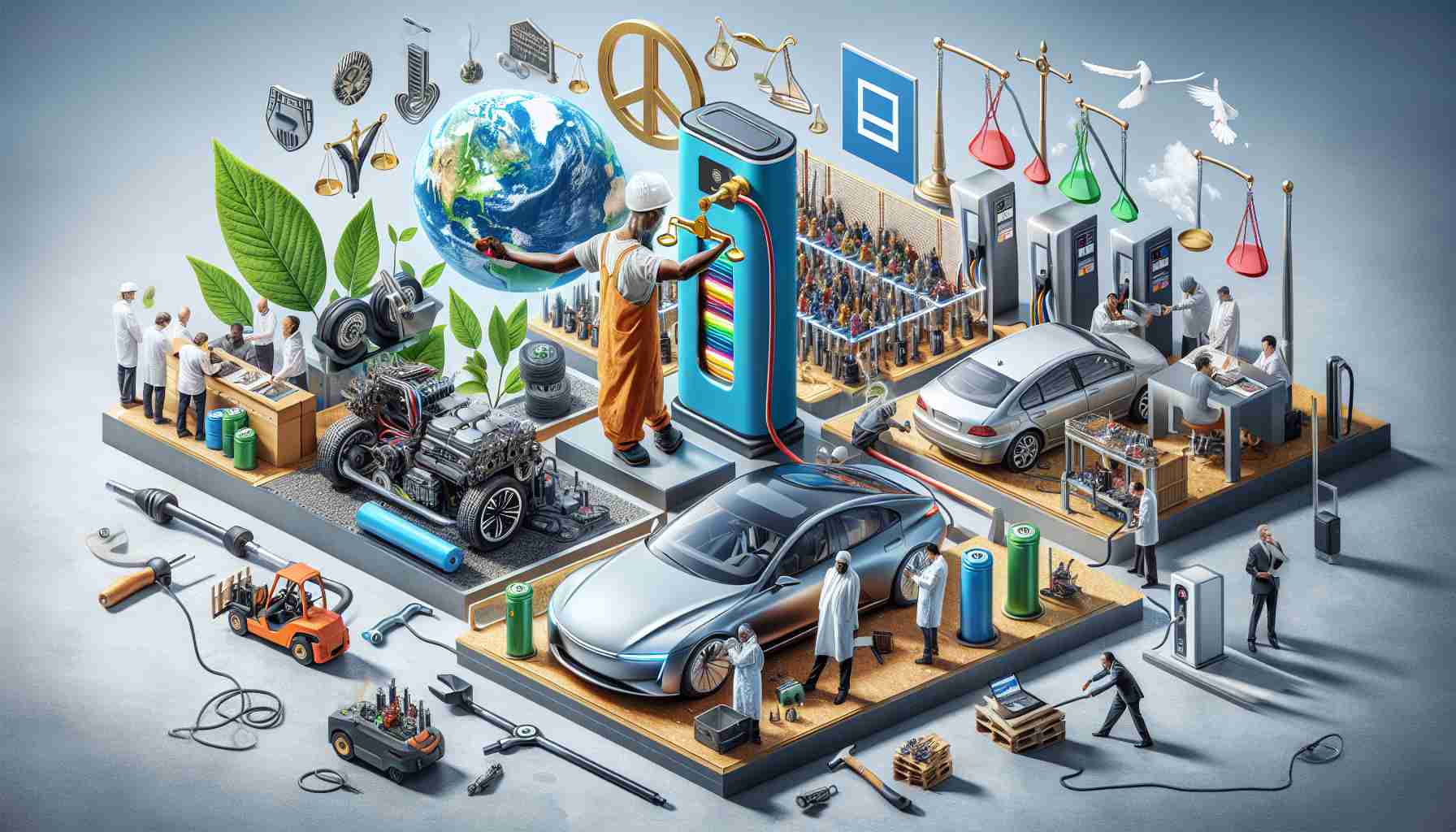Electric vehicle manufacturers urged to enhance transparency to uphold human rights.
In a bold stance against human rights abuses in EV battery supply chains, a recent report calls for increased transparency and accountability. The analysis, conducted by a prominent international organization, compared 13 major EV producers in terms of their commitment to human rights standards. Shockingly, leading companies like BYD and Mitsubishi fell short, scoring dismally low marks.
Room for Improvement Across the Board
Despite some companies scoring marginally better, there is an evident lack of diligence in ensuring ethical practices along the supply chain. The rush for materials such as cobalt, copper, lithium, and nickel poses a significant risk of exploitation and hazardous conditions for workers. With the demand for these resources escalating, urgent actions are needed to safeguard communities and uphold fundamental rights.
Call for Action
The report emphasizes the necessity for companies to disclose the origins of their materials and engage with affected communities. Aligning policies with international standards like the UN Declaration on the Rights of Indigenous Peoples is deemed crucial. Moreover, governments are urged to enforce regulations that mandate thorough assessments to protect both the environment and human rights.
Transparency Leads the Way
As the EV industry navigates these challenges, transparency emerges as a beacon of progress. European automakers have shown more consistency in this regard, possibly due to a robust regulatory framework. However, a unified global effort is imperative to ensure a sustainable and equitable transition to green technologies.
Progress through Collaboration
Stakeholders across the sector are called upon to join forces in promoting respect for human rights. Through ongoing dialogue and collective action, the industry can overcome obstacles and pave the way for a future where sustainability and social responsibility go hand in hand.
New Developments Shaping the Electric Vehicle Industry’s Human Rights Landscape
Amid the evolving landscape of the electric vehicle (EV) industry, additional critical questions come to light, shedding further insight on the intersection of human rights and sustainability within this sector.
Key Questions and Answers
1. How do labor conditions in EV battery supply chains impact human rights?
– Labor conditions in EV battery supply chains have raised concerns regarding worker exploitation and unsafe working environments. Addressing these issues requires collaboration among stakeholders to ensure fair labor practices and safeguard the well-being of workers.
2. What role do consumers play in promoting human rights in the EV industry?
– Consumers have the power to drive change by demanding transparency and accountability from EV manufacturers. By making informed choices and supporting ethically sourced EVs, consumers can influence industry practices and promote human rights standards.
Challenges and Controversies
One of the key challenges facing the EV industry is striking a balance between meeting the growing demand for EVs and upholding human rights standards. The rapid expansion of EV production requires a steady supply of raw materials, leading to increased pressure on supply chains and heightened risks of human rights violations.
Moreover, controversies surrounding the sourcing of materials such as cobalt and lithium, which are essential components of EV batteries, highlight the complex ethical dilemmas faced by manufacturers. Balancing the need for these resources with the ethical sourcing practices necessary to protect human rights remains a contentious issue within the industry.
Advantages and Disadvantages
On the one hand, the shift towards electric vehicles offers significant environmental benefits, including reduced carbon emissions and dependence on fossil fuels. By embracing EVs, societies can contribute to a more sustainable future and mitigate the impacts of climate change.
However, the reliance on resource-intensive materials in EV production presents challenges related to human rights abuses and environmental degradation. Striking a balance between reaping the benefits of electric mobility and addressing these ethical concerns poses a complex dilemma for industry stakeholders.
Related Links
– United Nations
– World Health Organization
In conclusion, the electric vehicle industry stands at a critical juncture where the promotion of human rights and sustainability must be core tenets of its operations. Addressing the challenges, controversies, and ethical dilemmas that accompany the rapid growth of EVs requires a concerted effort from all stakeholders to forge a path towards a more ethical and sustainable future.
